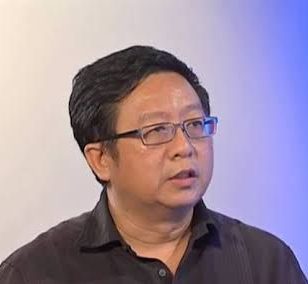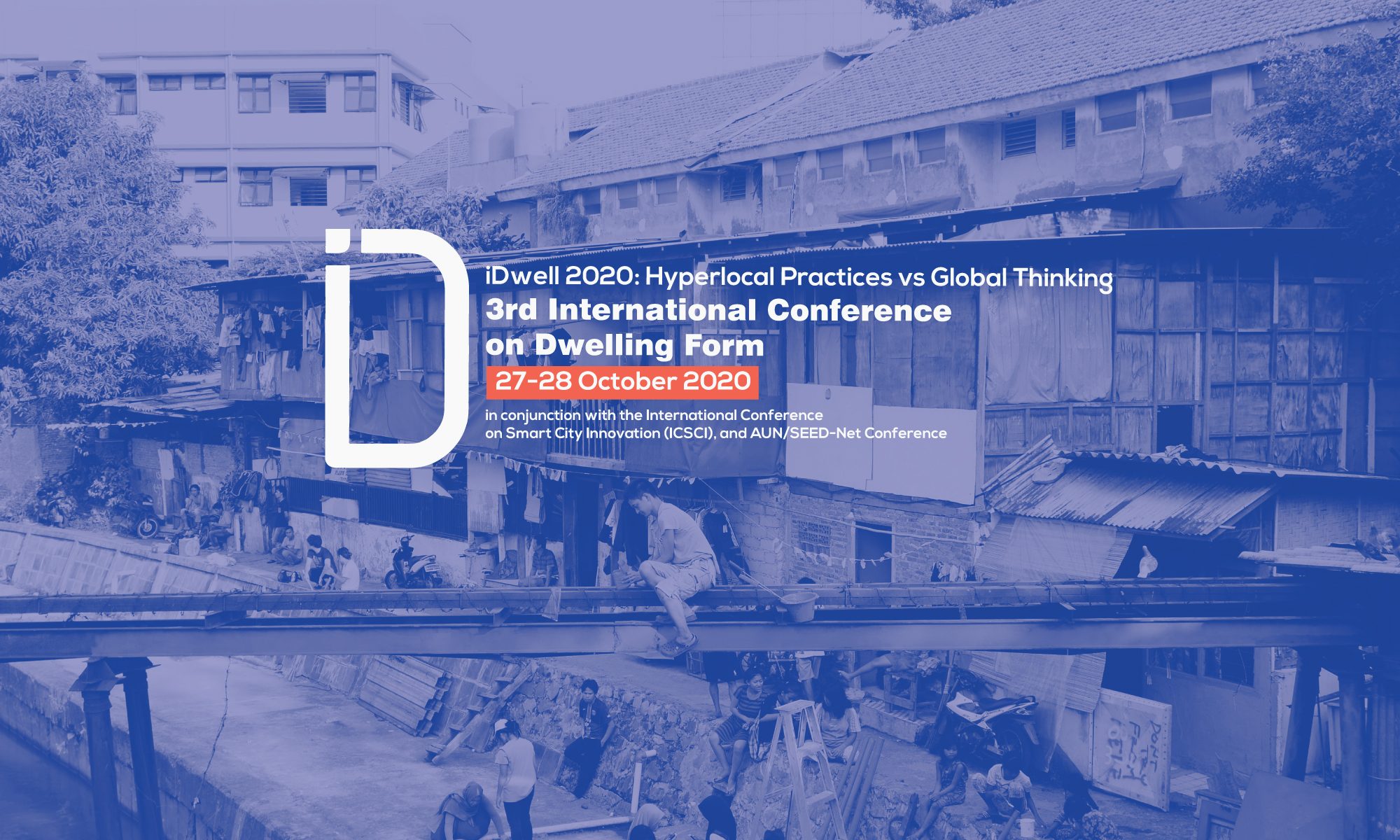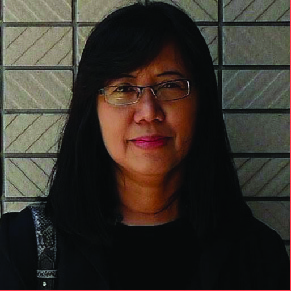The 3rd International Conference on Dwelling Form
Department of Architecture Universitas Indonesia
This conference is in conjunction with the International Conference on Smart City Innovation (ICSCI), LASER PULSE Conference, and AUN/SEED-Net Conference*
“To say that social relations ‘project themselves into a space, becoming inscribed there’ is to say that in any situation, social life forms its spatial milieu in characteristic ways that are productive for it. The spatial project is this formative movement into space, this dialectic between social relations and space itself.” (Madden, 2013)
iDwell is a conference organized by the Department of Architecture Universitas Indonesia started from 2015. iDwell 2020 aim to explore how the notion of dwelling as the spatial projection of its inhabitants and various stakeholders in the built environment.
The main topic is “Hyperlocal Practice vs Global Thinking” on dwelling space. This topic seeks papers that explore the socio-spatial initiatives, actions and practices of community to appropriate, reclaim, pluralised, transgress, uncover, and contest urban space in order to thrive in the changing scheme of the city.
Cities in Asia is the home of almost 60 percent of the global urban population. Its cities are faced with the challenge of providing livelihood to its inhabitants. In order to catch up with the fast changing development, city is no longer an area designed with a modern and formal urban design, but a combination of space that has been formed through practice and the space usage by the government, academics, NGO, and the people themselves.
Themes
Design activism employs the process of design as a tool to drive change and transformations, be it social, political, or cultural (Fuad-Luke, 2009). It can also be the means to obtain a more sustainable development by incorporating and empowering things or stakeholders that are previously excluded within the dialogue (Thorpe, 2012). This theme is interested to discuss how design activism is influenced by different narratives and contribute to various design approaches and frameworks in design practices. Related subthemes are as follows:
-
-
- Compact design (incl. mixed-use)
- Inclusive and universal design (incl. difable, aging and gender)
- Human Comfort and Behavior
- Community engagement
-
Panel Chair: Kristanti Dewi Paramita
Privatization and the erosion of public places has led the cities and its inhabitants to restrain what kinds of interactions and behaviors can afford, resulting in depoliticized, commodified, and passive public spaces. On the other hand, in the cities around the world, the small yet persistent challenges against the increasingly those regulated, privatized, and diminishing forms of public space have been represented.
This panel is looking for issues on how the claiming and reclaiming place potent to become the platform for inclusive and transformative dialogue. Related sub-themes are as follows:
-
-
- Squatters / Slums and Cities
- Sustainability and Social Responsibility
- Community and land use planning
- Neighborhoods and public space
-
Panel Chair: Evawani Ellisa
In today’s 21st century globalization, modern architectural design of dwelling, offices and places of consumption compete in creating the most unique and most groundbreaking designs. Buildings are no longer evaluated by its function. On the other hand, the lure of global travel has created dwellings with characteristic touch of cosmopolitan, “foreign” identities in the local. How do contemporary architectures embrace, experiment with, or embody localities and identities in response to the changing global environment? This panel section invites and welcomes papers which deal with locality and identity in these various contexts and conceptual frameworks. Related sub-themes are as follows:
-
-
- Cities in Transformation
- Design paradigms
- Arts, Culture and Placemaking
- Race, Gender, Ethnicity and Urban Issues
-
Panel Chair: Melani Budianta
To some disciplines, research is a formally procedural attempt at systemic inquiry, which requires a careful planning phase. Consequently, designing a research is a largely methodical sub-discipline in many fields of work. On the other hand, architects and urban designers alike conduct extensive research prior to/along with their design process.
This panel invites discussions on the different strategies employed by scholars in the field of architecture, urban planning, geography, demography and other disciplines contributing to the development and maintenance of urban built environment. Related sub-themes are as follows:
-
-
- Rethinking Planning and Urban Design
- Principles of Sustainable Development
- Planning Visions: Past and Present
- Civic Participation and Governance
-
Panel Chair: Ahmad Gamal
Schedule
| Abstract Submission | |
| Early Bird Registration | 1 March – 17 April 2020 |
| Regular Registration | 18 April – 25 September 2020 |
| Abstract Review Announcement | |
| Full Paper Submission | 29 June 2020 |
| Paper Review Announcement | 29 June 2020 30 July 2020 (for extended submission) |
| Camera Ready Paper Submission | 24 August 2020 |
| Conference Day | 27-28 October 2020 |
Speakers
Invited Speakers:

Kengo Hayashi (Lecturer, University of Tokyo)

Manu P. Sobti (Senior Lecturer, University of Queensland)

Manfredo Manfredini (Associate Professor, University of Auckland)

Lai Chee Kien (Adjunct Associate Professor, Singapore University of Technology and Design)

Eugenio Simonetti Toro (Design Critic, Harvard University)
Register Now
For additional info on fees and payment, please refer to this page.


